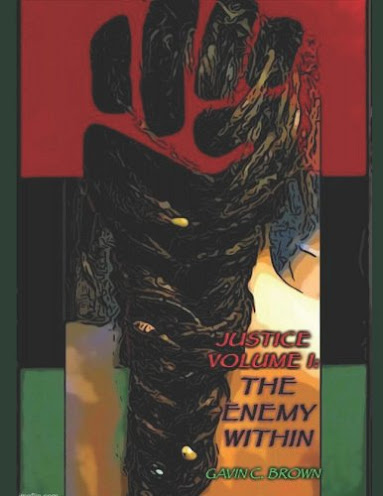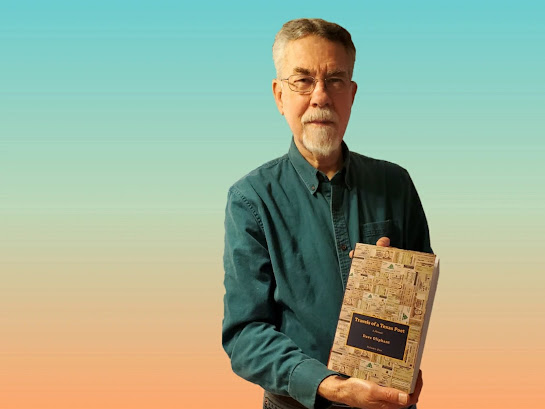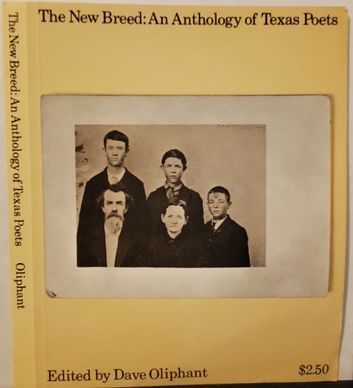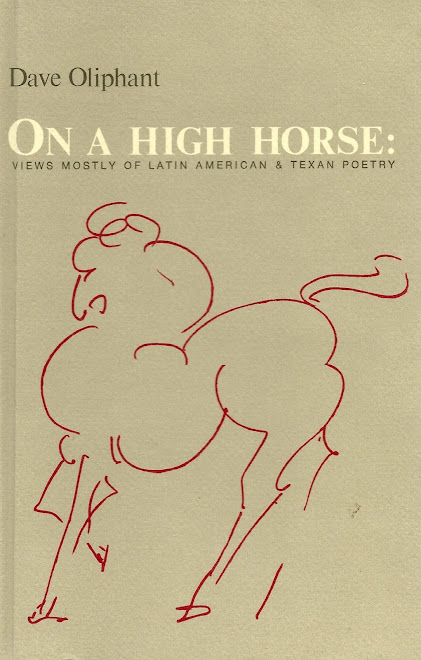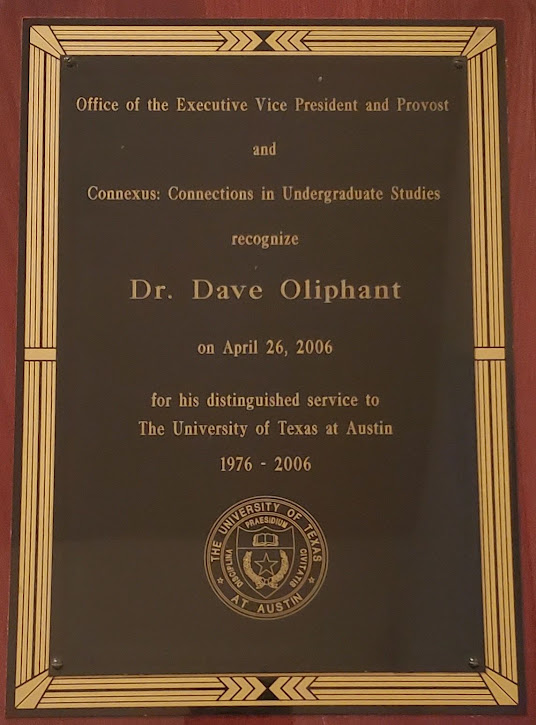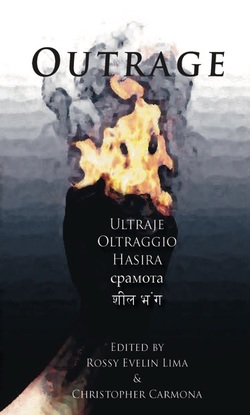Available from Bookshop.org
Not every novel intends a literary audience only, and works with a specific intended audience are often enjoyable reading experiences. In the first of an intended serial story, the author is endeavoring to create a world beyond a single volume, and there have been populist successes in this area. While Gavin C Brown’s Justice series (volume two is intended for release for February 2022) exists as a single volume currently, the work is still a provocative and entertaining reading experience—especially if the reader has beyond-tourist familiarity with the work’s setting of New Orleans.
Perhaps most fascinating for both literary and pure pleasure readers is Brown’s hybrid structure in this work, which combines prose and poetry to create the protagonist’s lived world experience as a contemporary black woman. Brown, himself, is no poseur in this arena, having grown up on the Westbank in Algiers. In a telephone interview, Brown describes New Orleans as “ a lively city and there are complexities associated with that”(20 October 2021). The novel attends to some of those complexities with a dark roux of humor, such as one character’s response to Say Their Names by inclusion of black victims of violence in menu items: “the George Floyd Somebody Call My Mamma Hot and Spicy Jambalaya, the Emmett Till Battered Fish and Fries, the Black Lives Matter Seafood Platter, the I Can’t Breathe Hot Wings” which the character justifies as “ Every time someone takes a bite and spends a dollar, it not only goes back into the community through investment{sic}They are reminded of those victims and their sacrifices. Every time someone takes a bite, it’s a bite out of injustice”(31). The novel’s text, at this point, is a conversation, but Brown adeptly shifts into his protagonist’s inner thoughts through a poem in her point of view: “ Is that I don’t know how he/could possible not see/The negative effects of these actions,/Passed his own satisfaction,/This is not how you build/The Black Community/This is not Black Love/Or Black Unity/This is just exploitation/Of victims Black,/Like you and me “(32). The fluidity of these genre shifts was, for Brown, the “biggest challenge” in writing; the character “is a poet” and Brown used the genre switch to “flow back and forth and climb into her head”(interview). Since this is volume one of an intended series, and Brown’s use of the hybrid form is so fluid, readers can hope to see this genre -bending format continue in the planned future work.
What becomes striking about this short novel is that both the character and the theme of the work are concerned with justice. Brown himself remarked on his choice of a female protagonist as being “of far more interest…there are not a lot of black women protagonists…they are unappreciated and persevering. There are enough male heroes out there. I want to do something different. Not the same old thing”(interview). Indeed, most of the characters and groups of characters in this street-smart, maybe-not-fantasy-dystopia are women, hero and anti-hero alike. One anti-hero intends a murder in an unnamed hospital “She’s holding flowers, and she enters the room. […]’The Arian Nation sends their regards,’ the blonde says and pulls a gun, but she can’t shoot it with her face full of my feet […] ‘so, what do they call you’ I say. ‘ The Milk Lady’”(58). Lest readers think that the novel posits all white people as enemy, Brown creates a supporting character in the form of a tall blond called Iron Maiden who sees herself as “an exterminator looking for rats…most of my kills have been KKK and Arian Nation”(88-89). Thus the stuff of heroes and their tropes become the core characters of this work, with New Orleans supplanting a fictive Gotham with genuine, real world ills.
While readers familiar with the choreography of fighting moves will find plenty of meat in the frequent action sequences, there’s no dismissing the ambitiousness undertaken here. Brown has multiple font changes-- to record the journal entries of Iron Maiden, conversations in italics, --and a use of street-level language that is currently taboo in general culture. This may be volume one, but it’s also the initial development of a hero world, one where corrupt charities and street thugs eventually get caught, where a girl from the St Bernard project becomes a defender of women. Readers of Brown’s “insider audience…because it’s such an African American centric piece” might laugh out loud a bit more, but the work is well worth the read—as shocking as it might be to consider complex issues of social justice through an action hero trope, Brown’s smooth handling allows also for a sense of delight and fun.
Su Zi is a writer, poet and essayist who produces a handmade chapbook series called Red Mare. She has been a contributor to GAS from back when it was called Gypsy Art Show, more than a decade ago.
